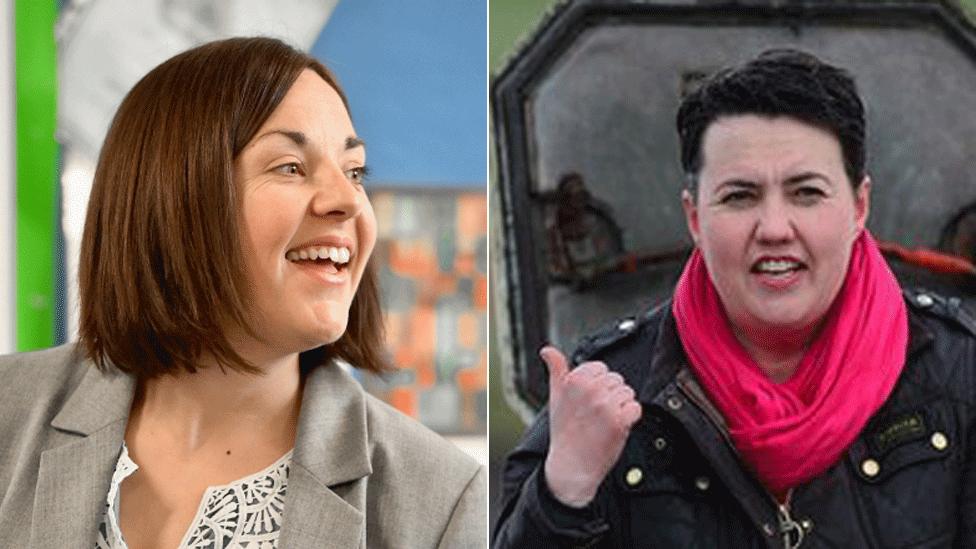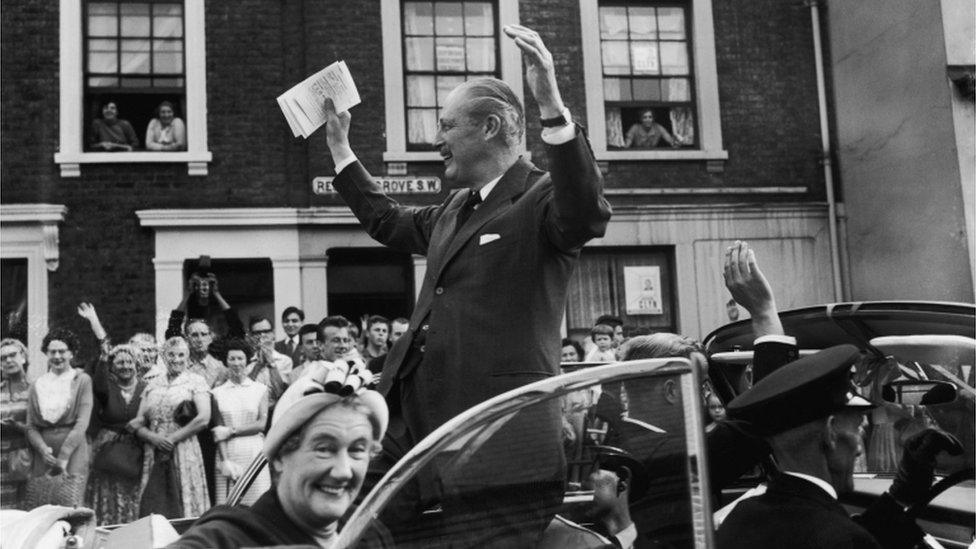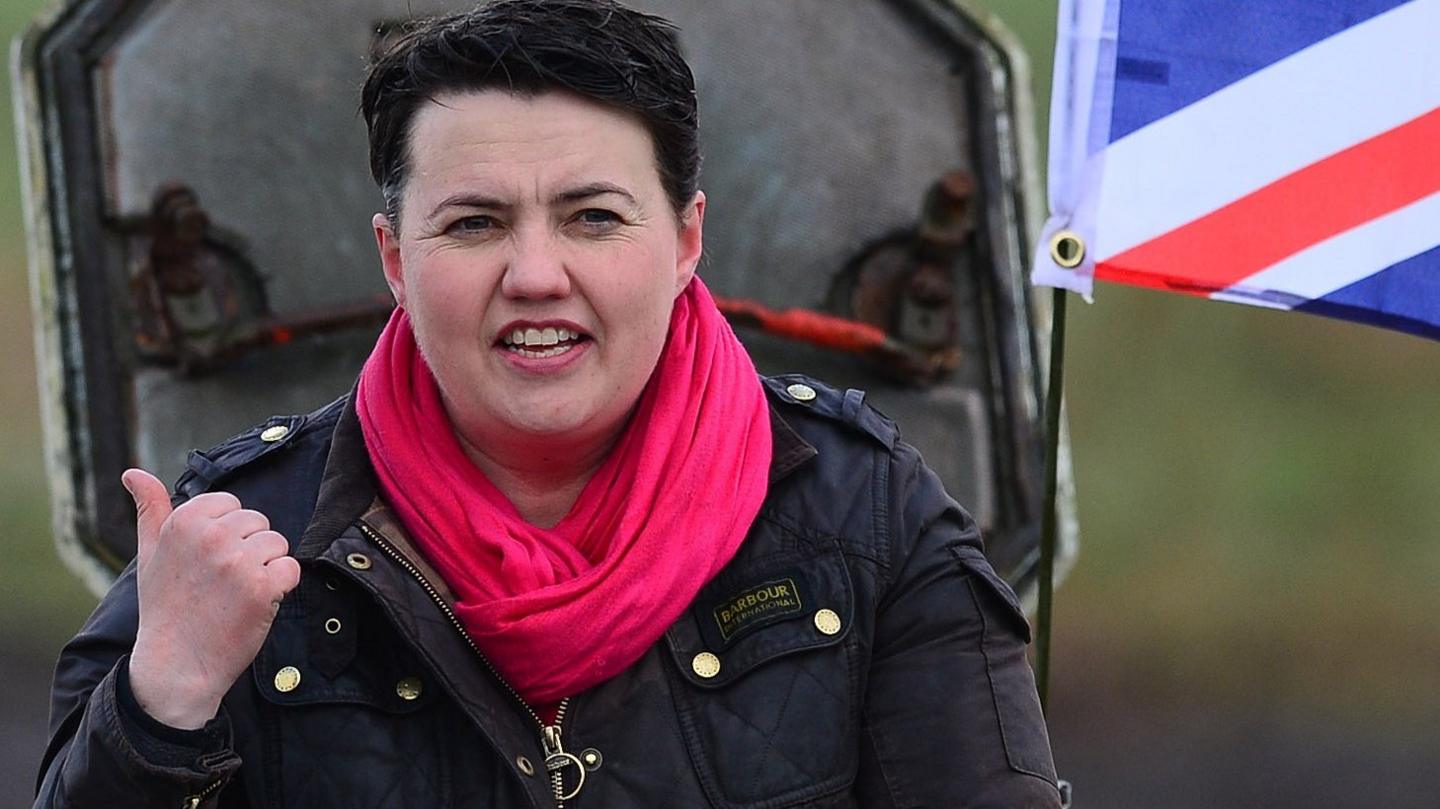Scottish politics: The race for runner-up
- Published

Voters are to go to the polls in the Scottish Parliament election on 5 May - with the SNP apparently on course to win a second successive majority.
But the battle for second place seems to be hotting up, with opinion polls suggesting that Scottish Labour and the Scottish Conservatives are currently neck and neck.
Here, John Curtice, professor of politics at Strathclyde University and the chief commentator at whatscotlandthinks.org.uk, external, looks at what the polls have been saying, and what we should be reading into them.

One of the first rules in the reporting of opinion polls is that those that purport to show a change in who is ahead and who is behind secure much more publicity than do those that suggest that little, if anything has changed. The exceptional is more interesting than the mundane.
However, the exceptional may be just that - unrepresentative of the real picture, a "rogue" poll that misleads rather than informs.
So what should we make of the poll from YouGov in Thursday's edition of the Times, external that has been widely reported as showing that the Conservatives have, for the first time since the creation of the Scottish Parliament in 1999, overtaken Labour in voting intentions for this coming May's Holyrood election?
Such an outcome would constitute an earthquake in Scottish politics. Not since 1959 have the Tories managed to outpoll Labour in a national election north of the border.
Well, first of all, the YouGov poll does not constitute clear evidence that the Tories have overtaken Labour.

The last time the Conservatives finished ahead of Labour in Scotland was 1959 - when Harold McMillan's Tory government was re-elected with an increased majority
True, with 20% of the vote to Labour's 19%, the party is put slightly ahead in the battle for constituency votes.
But given the random variation to which all polls are subject, this statistically is simply a dead heat. We just cannot be sure which of the two parties is ahead.
Meanwhile on the second of the two votes that voters will be invited to cast in May, that is, for a regional list, the poll did actually put the two parties neck and neck in 20% each.
At the same time, no other poll has suggested the two parties are even equal with each other. Perhaps then it is but no more than a "rogue".
That said, YouGov is not alone in one respect. In recent weeks every single poll has identified a modest but noticeable increase in Conservative support.
Since the beginning of the year four companies have conducted polls of vote intentions for May's election. On average they have put the Conservatives on 17.5% (on both ballots).
Ebbed away
But when those same four companies polled back at the beginning of September they credited the Conservatives on average with just over 14%.
While the result of one poll might be dismissed as an aberration, when four polls all point in the same direction we can be pretty sure that something really has happened.
Meanwhile, Labour's support, already much diminished, has ebbed away yet further over the same period.
Back in September Labour was averaging between 21% and 22%. Now the party stands between 19% and 20%. The party has apparently slipped by another couple of points.
Between them the three point increase in Conservative support and a two point drop in Labour is enough to ensure that all the polls agree that the Conservatives are now breathing down Labour's neck, even if they may not necessarily as yet caught them up.
But there are of course still three months to go to polling day. Perhaps the slow Tory advance will continue, in which case maybe they will be able to edge past Labour.
But equally, of course, Labour might recover - and avert the threat that Ruth Davidson's party currently apparently poses.
Read more analysis from John Curtice at What Scotland Thinks, external.
- Published13 January 2016
